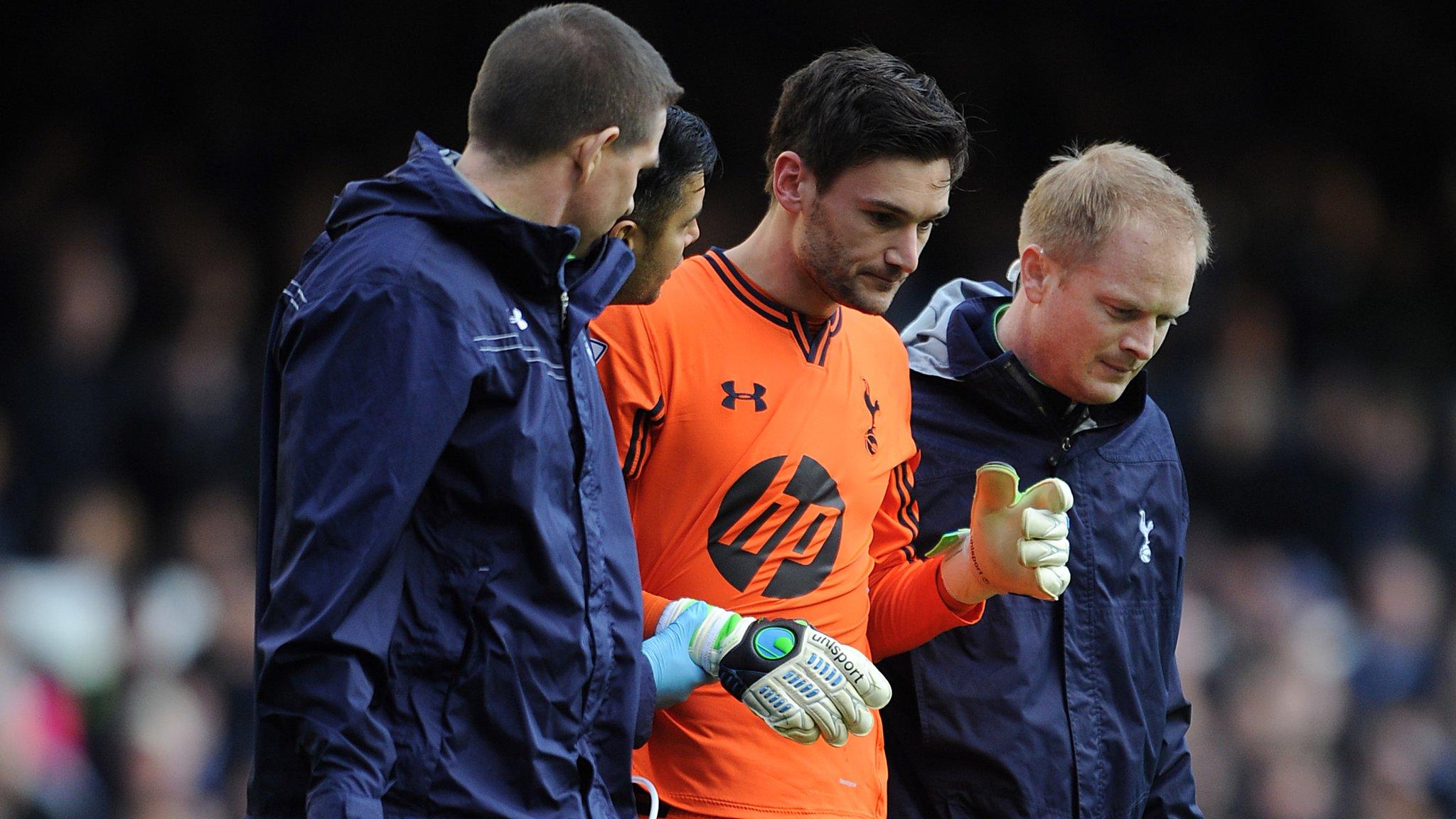Protect footballers from concussion risk, says journal
- Published
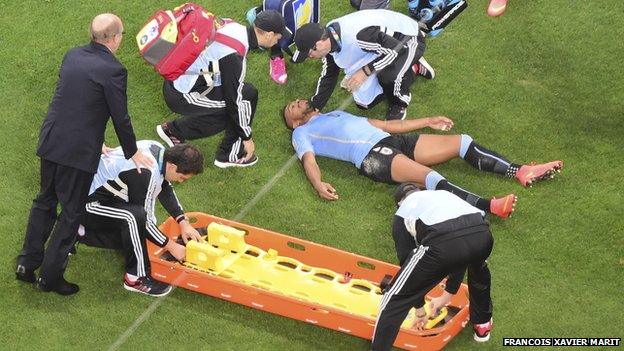
Uruguayan defender Alvaro Pereira appeared to be knocked unconscious in a World Cup match
Decisions on whether a footballer can return to the pitch after a head injury should be taken by an independent doctor, and not the player or coach.
An editorial, external in The Lancet Neurology says these decisions should not be made "by those with a vested interest".
FIFPro, the footballers' union, has called for an investigation, external into concussion protocols.
This follows incidents during the World Cup where footballers played on after appearing to be concussed.
"Because signs and symptoms of concussion can be delayed, removing an athlete when there is any suspicion of injury would seem to be the safest approach," the journal editors wrote.
They refer to a recent World Cup group match against England, when Uruguay's Alvaro Pereira returned to the pitch after appearing to be knocked unconscious by a blow to the head.
Pereira admitted to arguing with his team doctor, demanding that he should be allowed to continue playing.
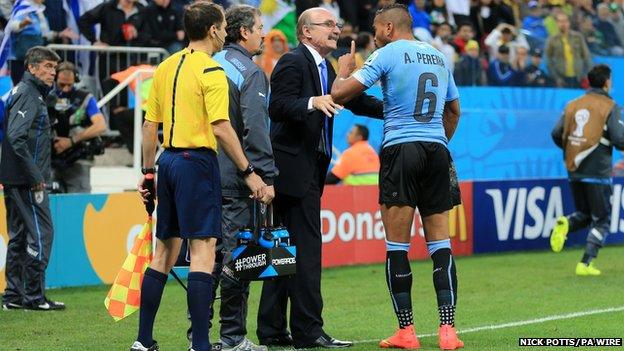
Pereira argues for his return to the pitch following his head injury
The editors make the point that the decision on the player's "fitness to play" should not have been left in the hands of the Uruguayan team doctor and team officials.
Instead, "return-to-play decisions should be made on an individual basis", they said.
In the World Cup semi-final between Argentina and the Netherlands, Javier Mascherano stumbled about and then collapsed on the pitch after clashing heads with a Dutch player.
Despite appearing to suffer concussion, the Argentinean midfielder returned to the fray just minutes later.
'Wrong message'
Fifa has been criticised for failing to deal with the incidents safely, by ensuring that the players were immediately taken off the pitch and removed from the game.
While many sporting organisations now recognise the potential damage that mild traumatic brain injury (TBI) can cause, the writers said more needs to be done to reduce how often these injuries occur.
Improving the assessment, monitoring and care of adults and children with sports-related concussion should also be a priority, it states.
Mr Antonio Belli, reader in neurotrauma at the University of Birmingham, said players don't understand how dangerous concussion can be.
"When players return to the pitch and continue playing, they are sending out the wrong message. There are lots of medical reasons not to continue."
The long-term consequences of mild traumatic brain injuries can include dementia and other neurological degenerative diseases.
Headaches and dizziness can appear in the short-term.
- Attribution
- Published1 June 2014
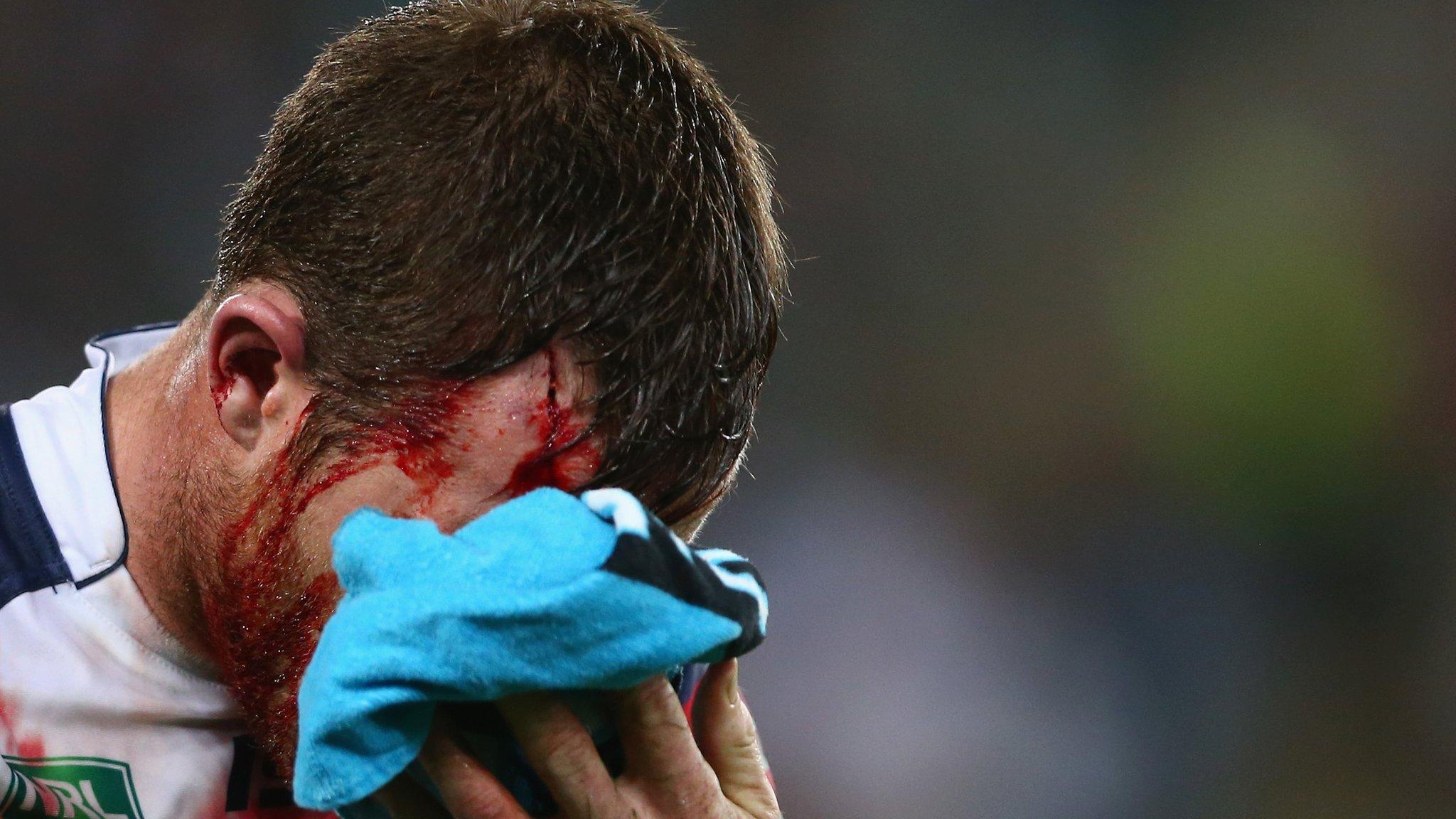
- Published21 November 2013
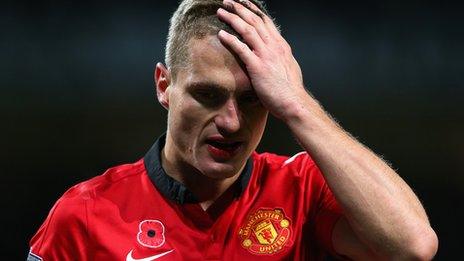
- Attribution
- Published4 November 2013
